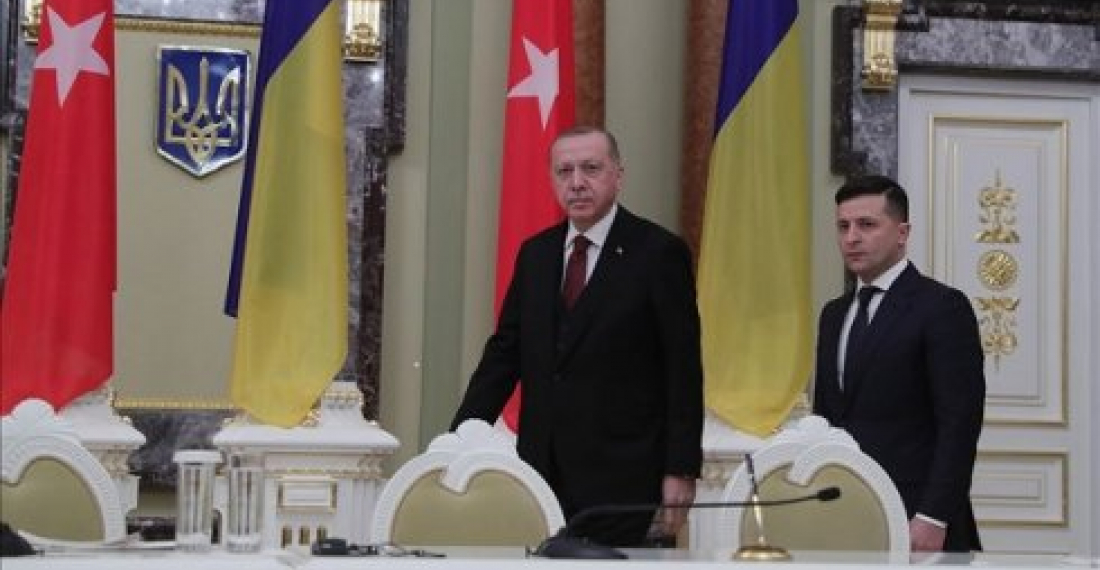Turkey on Monday (3 February) again underlined that it does not recognise Russia's illegal annexation of Crimea.
Turkey's support for Ukraine's sovereignty and territorial integrity will continue, Turkish President Recep Tayyip Erdogan told a news conference in Kiev, standing alongside his Ukrainian counterpart Volodymyr Zelensky.
The Turkish president earlier arrived in the Ukrainian capital on an official visit during which the two sides discussed military and economic co-operation.
The visit came on the day Russian-Turkish relations continued to deteriorate in the wake of a deadly attack by Russian backed Syrian forces on Turkish troops in Idlib Monday.
A total of "eight people, including three civilians and five [Turkish] soldiers were martyred today in shelling by Assad regime forces in Idlib," Erdogan said at the press conference.
"We are making them [Assad regime forces] pay the necessary price intensively through air and land attacks, and we will continue to do so," he underlined, as Turkey's defense minister reported Turkey hit 54 Syrian forces targets and killed 76 soldiers.
Everybody should know what they must do under agreements reached in Astana and Sochi as part of the Syrian peace process, and Turkey will continue its work in this framework, he said.
The Turkish president said that his government had told the Russian's not to stand in Turkey's way in Idlib.
On the same day, the defense ministry announced the cancelation of a scheduled Turkish-Russian joint patrol in Syria's Ayn al-Arab province shortly after a statement from Moscow, which was later rejected by Turkish officials.
In the meantime, the Russian Foreign Ministry said on Monday that an unidentified small drone approaching Russia's air base at Syria's Hmeymim from the Mediterranean was downed by the base's Pantsyr missile defense system.
According to the ministry, an unidentified small unmanned aerial vehicle was stopped by the airbase's radars when it was approaching the Russian base from the northeastern part of the Mediterranean Sea after dark.
"The target was destroyed by the Panstyr-S missiles at a distance from the airbase. No one was hurt. No material damage was done," the ministry said, adding that the airbase is operating routinely.
According to the Russian TASS news agency there are currently, two Pantsyr systems deployed in Syria - one at the Hmeymim base and the other one used by the Syrian government army.
source: commonspace.eu with agencies
photo: President Erdogan of Turkey and president Zelenskiy of Ukraine ahead of a press conference in Kiev on 3 February (picture courtesy of Anadolu Agency, Ankara).






